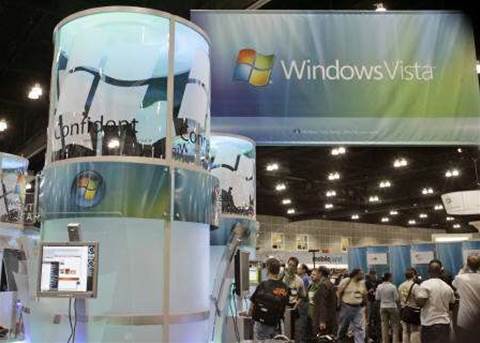SAN FRANCISCO (Reuters) - A Washington judge on Tuesday cleared the way for a former Microsoft executive to work for Google in China but placed tough restrictions on confidential information he had gleaned while working at Microsoft.
At the same time, King County Superior Court Judge Steven Gonzalez found that Kai-Fu Lee, a former Microsoft vice president, had misled his former employer and taken advantage of confidential Microsoft information when first working at Google.
This could help Microsoft when the case, which seeks to hold Lee to a confidentiality pact, goes to trial in January, a Microsoft spokesman said.
Later in the day, Microsoft General Counsel Brad Smith said in a statement that his company was ready to settle its lawsuit if Google accepts the injunction's terms for the remaining 10 months of Lee's contract.
"We can settle this lawsuit tomorrow if Google will agree to take today's preliminary injunction, keep every word without a single change, and enter it as a permanent injunction that will last until July 18, 2006," Smith said.
A Google spokesman said the company had yet to be contacted by Microsoft or its legal counsel on any potential settlement.
"If they have something they want to discuss, we would be happy to learn more about what they are offering," Google spokesman Steve Langdon said in response to Microsoft's statement.
The courtroom arguments reflect an increasingly bitter rivalry between the two companies, which have begun competing in the areas of Web search and services, as well as hiring.
Lee can begin working for Google by setting up a research office in China and recruiting software engineers but is restricted from using confidential information gleaned while he worked at Microsoft, the judge ruled.
"Dr Lee is going to be the highest-paid HR (human resources) manager ever," said Tom Burt, Microsoft's vice president and deputy general counsel.
"He can't tell them what to do, he can't direct them, he can't manage them," Burt said of recruits hired by Lee.
Lee, 43, had established Microsoft's research and development centre in Beijing before moving to Redmond to work on software that allows computers to process speech and natural language data.
In testimony earlier this month, Lee said that he left Microsoft after becoming frustrated with the company's approach to doing business in China.
Lee described an incident while working for Microsoft in which Microsoft chairman Bill Gates had used a string of expletives to describe how the Chinese government was retaliating against the software giant.
A spokesman said Gates denies making the comments.
In July, Microsoft won a temporary restraining order against Lee and Google. Google, based in Mountain View, California, counter-sued in its home state to block Microsoft's lawsuit, and a hearing in that case is scheduled for 14 October.
Back to work
The Washington state judge enjoined Lee and his new employer from working on any product or service that relies on confidential information tied to search, natural language processing and speech recognition that he obtained while working for Microsoft.
Google lawyers had agreed to these specific restrictions ahead of the ruling, a Google spokesman said.
"Microsoft has not sufficiently shown that it has a clear legal or equitable right to enjoin Dr Lee, pending trial, from establishing and staffing a Google development facility in China," the judge wrote in a preliminary injunction ruling.
But he also found fault with Lee's actions.
"Dr Lee misled Microsoft about his intention to return to Microsoft following his sabbatical, and he continued to have access to Microsoft's proprietary information after he decided to leave Microsoft to join one of its competitors without informing Microsoft," the judge wrote, referring to the period before and immediately after Lee joined Google in June.
"Dr Lee began assisting Google while he was still employed at Microsoft," Gonzalez found in his ruling.
Lee is set to report for work at Google's headquarters on Wednesday morning.
In a phone interview, Lee said he was excited to finally get to work for Google. "Before today, I have not really been able to work, talk to people, or email anybody," he said.
Lee said he will travel to China in the next week or two to begin a tour promoting a new book that the respected Chinese academic has written to promote positive cultural values. The book's target audience is Chinese students.
While in China, Lee will complete the search for a location for Google's first research and development facility. Beijing and Shanghai are under final consideration. Eventually, both cities will have Google research facilities, he said.
"It is really a question of which city will be first," he said.
Ex-Microsoft exec able to work for Google: judge
By
Staff Writers
on Sep 14, 2005 4:01PM

Got a news tip for our journalists? Share it with us anonymously here.
Partner Content

Guiding customers on the uneven path to AI adoption
.png&h=142&w=230&c=1&s=1)
How mandatory climate reporting is raising the bar for corporate leadership

Shared Intelligence is the Real Competitive Edge Partners Enjoy with Crayon
_(27).jpg&h=142&w=230&c=1&s=1)
Promoted Content
Why Renew IT Is Different: Where Science, AI and Sustainability Redefine IT Asset Disposition
.jpg&h=142&w=230&c=1&s=1)
New Microsoft CSP rules? Here’s how MSPs can stay ahead with Ingram Micro







.jpg&w=100&c=1&s=0)
_(8).jpg&w=100&c=1&s=0)











